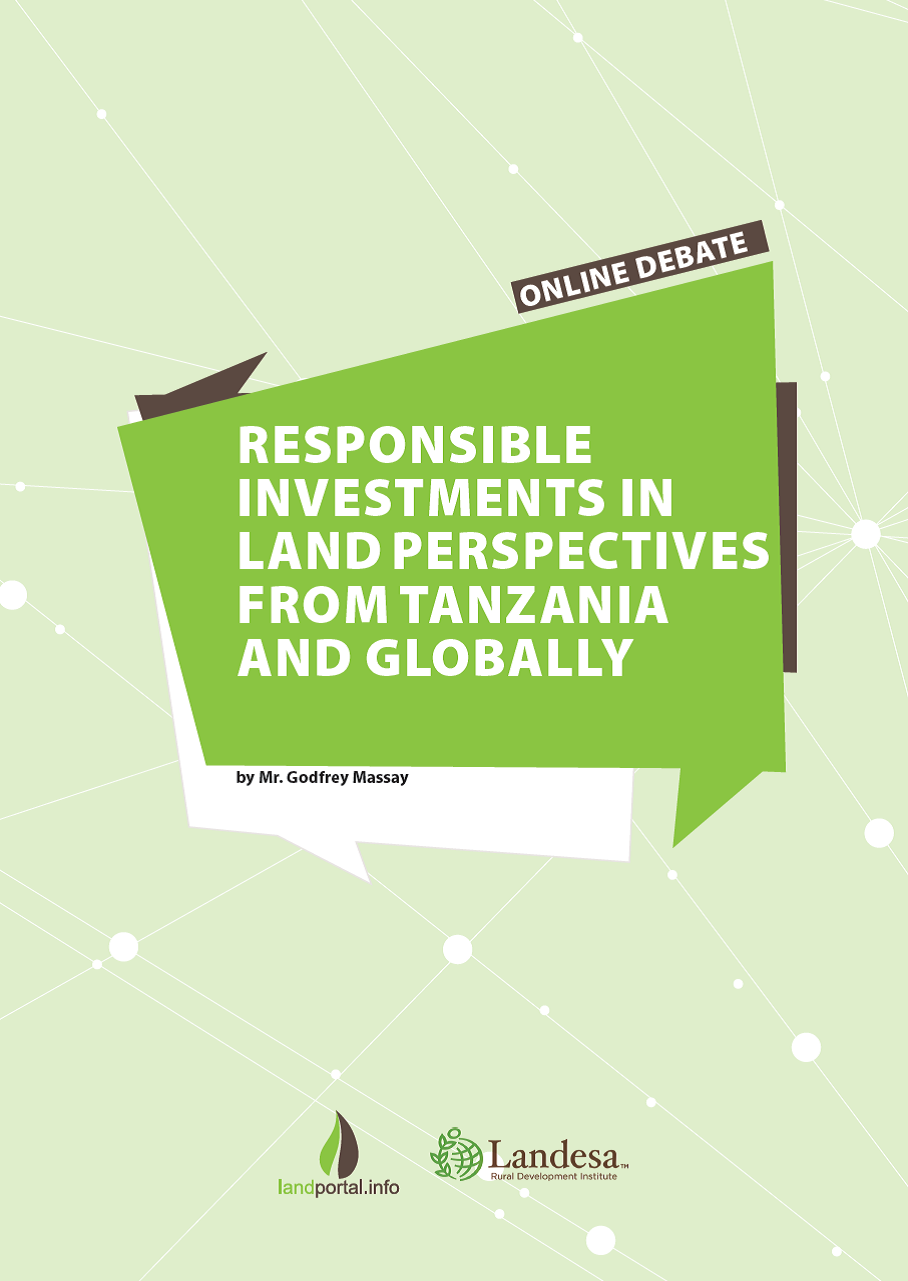Resource information
Landesa (strengthening land rights for the world’s poorest people) and Land Portal co‑facilitated the online dialogue on “Responsible investments in land: perspective from Tanzania and globally” from June 5 -16, 2017.
For details on the dialogue follow this link.
The dialogue brought together variety of practitioners and experts from Tanzania and other parts of the world. It provided avenue for discussants to share knowledge and experiences from other jurisdiction on the Responsible investment concept to its applicability in the Tanzania context. Until its closure, 112 comments were received from 41 participants. More than 1334 people visited discussion and 2306 page views.
The debate was designed as part of the broader conversation on responsible investment in land principles, guidelines and practices that has been trending on food crisis and subsequent ‘land grabs’ in the global south, Tanzania inclusive. The dialogue intended to bring to attention perspective on a conversation and debate that often remains in the conceptual or abstract. The Tanzanian context is particularly relevant because of the government’s interest to increase agricultural investment and revise the current National Land Policy with the process underway, which, among other things, has implications for decision-making processes around land-based investments.



